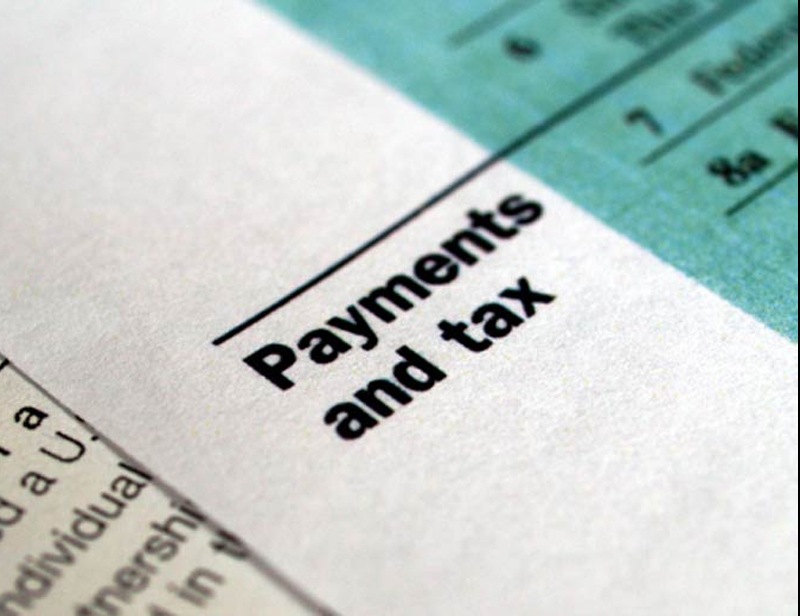-

Budget 2016 expectations and income tax relief: The greatest Budget 2016 expectations are centred around one major feature and that is Tax Deducted at Source (TDS) for the common man. Exactly what PM Narendra Modi and FM Arun Jaitley are planning for the big day (Budget date is 29th Feb) is first and foremost on the minds of taxpayers. While what is ultimately going to transpire on D-day is a top government secret, but we have certain facts in public domain to go forward with that may impact FM's mind on the subject: So, learn here if Budget 2016 expectations will actually turn into Income tax relief in 7 quick slides:
-
In Budget 2016 the TDS rate has been halved in case of National Savings Scheme to 10 per cent, and on commission on sale of lottery tickets and other brokerages to 5 per cent. The Budget also proposes to abolish TDS on income in respect of unit and payment of compensation on acquisition of capital assets. (Express photo)
-
2. Budget 2016 expectations and income tax relief: With nearly 65% of the personal income tax collection in India being raised through tax deducted at source (TDS), the onerous task of which has been cast on tax deductors, the TDS provisions need to be made more tax friendly and not as ‘tedious’ as they have remained over the years.
-
3. Budget 2016 expectations and income tax relief: It is a matter of record that a number of annual threshold limits in respect of TDS have just not come to be revised over the years. With the liability of TDS being attracted on such tiny annual limits of Rs 2,500 in respect of payment of interest on securities and on interest on NSS accounts, Rs 5,000 for payment of interest on private deposits and commission or brokerage and Rs 10,000 for payment of bank interest, one can just imagine the enormous work that goes into compliance of these provisions. Considering the importance of the long overdue revision of these puny limits, the Committee has recommended suitable hikes in such threshold limits. (Reuters)
-
4. Budget 2016 expectations and income tax relief: The Committee has also felt the dire need for rationalization of TDS rates, more particularly on account of the lowering down of the average tax rates in case of majority taxpayers in the Individual and HUF 28 categories, keeping in view the restructuring of the Income-tax rates over the past decade. To illustrate, in FY 2004-05, taxable income of Rs 5,00,000 in the case of an Individual or HUF attracted income-tax of Rs 1,24,000 at an average rate of tax of 24.8%. In FY 2015-16, the same taxable income of Rs 5,00,000 attracts income-tax of only Rs 23,000 (after rebate u/s. 87A), with the average tax rate working out to just 4.6%. (Reuters)
-
5. Budget 2016 expectations and income tax relief: Today, the average tax rate of 10% gets attracted only on taxable incomes beyond Rs 7,00,000. As a result, majority of the taxpayers, more particularly those having mainly interest incomes, are required to claim sizable income-tax refunds. The Income-tax Department is also required to collect taxes in a very large number of such cases, merely to refund a substantial chunk of such collection, along with interest thereon. (Express photo)
-
According to the Budget proposal for 2016, the TDS rate in respect of life insurance policies has been reduced from 2 per cent to 1 per cent and on insurance commission from 10 per cent to 5 per cent. Arun Jaitley had that for those 'who get their funds blocked due to current TDS provision', TDS provisions for Income Tax will be rationalied.
-
7. Budget 2016 expectations and income tax relief: Under the existing provisions, Individuals and HUFs have been exempted from the responsibility of tax deduction at source, unless their total sales, gross receipts or turnover from the business or profession carried on by them exceed the monetary limits specified under section 44AB. With a view to facilitate ease of business for small partnership firms (other than limited liability partnerships), who are also not equipped to discharge the complex formalities of tax deduction, the Committee recommends that they may also be included within the scope of this exemption.